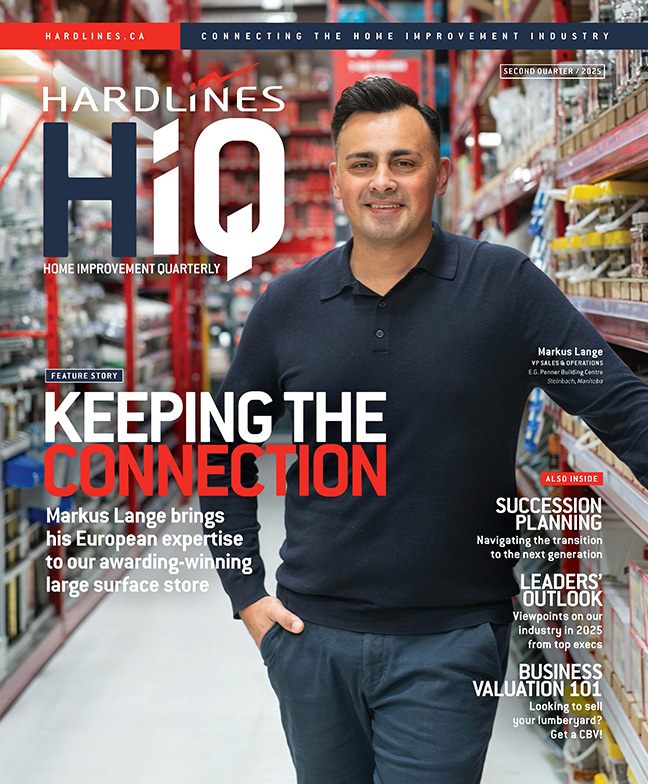
Donald Cooper is a Toronto-based speaker and business coach. Using his vast experience as a manufacturer (Cooper Canada sports equipment) and an award-winning retailer, Cooper has helped hundreds of companies in over 40 industries around the world to create compelling customer value, clarity of purpose, and long-term profitability.
This year you could have lunch alone or skip lunch altogether. But imagine what you could learn and accomplish if, just once a week, you chose to have lunch with someone new on your team. It’s a great way to connect with employees from various parts of your business.
Before the lunch, make sure you know what they do, and whether there have been any challenges with them or their department recently. Have they been promoted or taken any training recently? Then, at the lunch, thank them for being part of the team and, in a kindly way, ask them a few questions such as these:
- How can we help you do your job better?
- What frustrates you or slows you down?
- Is there anything we can do to operate more safely?
- What could we do to be more environmentally responsible?
- From your perspective, what do we do that frustrates or confuses our customers?
- What are three things that we could do better?
- Do we as a company ever make promises that we don’t keep?
- What would you like to know more about regarding the business and how we operate?
- Where would you like to be in your career and life in three to five years? How can we help you get there?
Assure them that if they have any thoughts about any of these subjects in the future, you’d like to hear them and then tell them how they can reach out. If you’re not their immediate supervisor or manager, make sure that the person who is knows about the lunch ahead of time and why you’re doing it.
Pick a lunch spot that will make conversation easy and comfortable. A spot that will honour but not intimidate your lunch guest. It can be close to your place of business. Or it could just be sharing a great pizza with a small group of employees in a quiet corner in the office, warehouse, or production facility.
When we listen to our staff, two things happen. We learn from them and we honour them. So, if you think this makes sense, announce to your team that you’ll be doing this on a regular basis and that it’s not to go behind anyone’s back. It’s a simple way to stay in touch with the HR realities of your workplace.

 Joel Seibert started out trying to make his business more competitive. He ended up creating a strategy to make his workplace a more effective selling environment for his staff. And once he’d figured out the secret sauce, he wanted to share it with other dealers. So he presented it in a seminar called “It’s Time to Get Your Sales Team Excited to Sell” at the Western Retail Lumber Association’s Building and Hardware Showcase, held in Winnipeg on Jan. 19 and 20.
Joel Seibert started out trying to make his business more competitive. He ended up creating a strategy to make his workplace a more effective selling environment for his staff. And once he’d figured out the secret sauce, he wanted to share it with other dealers. So he presented it in a seminar called “It’s Time to Get Your Sales Team Excited to Sell” at the Western Retail Lumber Association’s Building and Hardware Showcase, held in Winnipeg on Jan. 19 and 20. A large 62,000-square-foot Home Hardware Building Centre store under construction in Clarington, Ont., will obviously need a full complement of staff when it opens soon. This at a time when retailers across Canada are finding it difficult to hire.
A large 62,000-square-foot Home Hardware Building Centre store under construction in Clarington, Ont., will obviously need a full complement of staff when it opens soon. This at a time when retailers across Canada are finding it difficult to hire. The CEO of the Sexton Family of Companies, which includes the Sexton Group, was honoured recently by the Western Retail Lumber Association. Steve Buckle was awarded the Outstanding Achievement Award at the WRLA’s annual Building and Hardware Showcase, held last week in Winnipeg.
The CEO of the Sexton Family of Companies, which includes the Sexton Group, was honoured recently by the Western Retail Lumber Association. Steve Buckle was awarded the Outstanding Achievement Award at the WRLA’s annual Building and Hardware Showcase, held last week in Winnipeg. As general secretary of the Global DIY Network, an international umbrella organization that connects home improvement retailers around the world, retail leader John Herbert has met and worked with some of the industry’s top executives throughout his 60-year career. That career includes working at the first big boxes in Europe and at Home Depot in North America.
As general secretary of the Global DIY Network, an international umbrella organization that connects home improvement retailers around the world, retail leader John Herbert has met and worked with some of the industry’s top executives throughout his 60-year career. That career includes working at the first big boxes in Europe and at Home Depot in North America. Martina Pileggi is senior director of human resources for the Hillman Group Canada, a fastener producer for the hardware, automotive, plumbing, and electrical markets.
Martina Pileggi is senior director of human resources for the Hillman Group Canada, a fastener producer for the hardware, automotive, plumbing, and electrical markets.